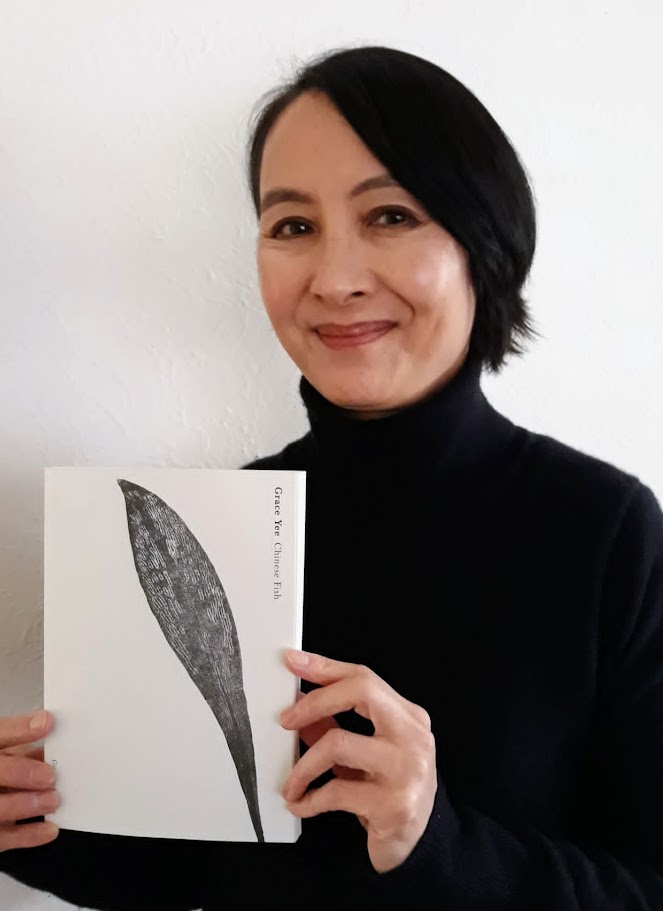To celebrate the inclusion of Chinese Fish by Grace Yee (Giramondo, 2023) on the Ockham NZ Book Award Poetry short list, Grace has read three extracts from the collection and I have written a short review. Her debut collection is a book to be celebrated. The awards will be announced at an Auckland Writers Festival Event on May 15th. In the meantime here is a taste of this sublime book.
The reading
from ‘Paradise’
from ‘Chinese Fish’
from ‘For the Good Husband’
Grace Yee is the author of Chinese Fish, winner of the Victorian Prize for Literature and the Victorian Premier’s Poetry Award in 2024. Her poetry has been widely published and anthologised across Australia and Aotearoa, and internationally, and has been awarded the Patricia Hackett Prize, the Peter Steele Poetry Award, and a Creative Fellowship at the State Library Victoria. Grace has taught in the Writing and Literature Program at Deakin University, and in the Creative Writing Program at the University of Melbourne, where she completed a PhD on settler Chinese women’s storytelling in Aotearoa New Zealand. She lives in Melbourne, on Wurundjeri land.
Giramondo page
Grace Yee website
Grace in conversation with Susana Lei’ataua Radio NZ National
The review
Grace Yee’s debut collection Chinese Fish demonstrates the power of poetry to move and delight you on many levels. The foundation stone of the writing is family, and the writer’s ink is rich in multiple voices, braided narratives, cultural inheritances. It is a rendition of immigration, hierarchies, overt and covert racism, and emerges from daily living, experience, feeling, reflection, research and a tremendous love of words.
Grace has adapted her collection from the Creative Writing and Cultural Studies PhD thesis that she completed at the University of Melbourne. Her writing draws upon and borrows from diverse sources: New Zealand archives including newspapers; nonfiction works on gender and women; songs, radio documentary. Seven poem sequences gather the overlapping subject matter, the motifs, the linguistic melodies.
I begin with the strength and magnetism of voice, and am reminded of Robert Sullivan’s Voice Carried My Family (Auckland University Press, 2005). Voice is the back bone, the navigation tool, the crevice of vulnerability, the ache of cultural conflict that drives the polyvocal narrative. It is personal, it is political, it is infused with thought as much as feeling. We hear the voice of a grandmother, a mother, an aunty, offspring. As the poetry travels across decades, from the 1960s to the 1980s, we hear the barbs and the blessings of experience, in English and in Grace’s hybrid use of Cantonese and Taishanese phrases (Hoisan-wa), the languages she grew up with. There is a glossary at the back of the book with the English translations. And yes, voice carries this family.
Ping and Stan, emigrate from Hong Kong to Aotearoa New Zealand where they raise four children, own a fish and chip shop, navigate racial abuse, negotiate unfamiliar food and customs that mark one as ‘English / New Zealander’. Across several visual pages, repeated rows of identical figures reinforce the habit of pigeonholing a non-white race as all the same – whether in how someone looks or what they choose to be or do.
Hybridity enriches the dough of writing if you forgive my food pun. Dialogue sits alongside the newspaper borrowings, lyricism alongside more scholarly lines. Historical and cultural facts, along with additional comments, arrive in a faint grey font, little disruptions like a persistent shadow that hovers behind every we line we read, every voice we hear. We read for example: ‘1898: / Old Age Pensions Act. Chinese and other “Asiatics”, / including those who have been naturalised, ineligible.’ And yes food is a succulent presence, a visibility that heightens both the sense of belonging and not belonging: from roast lamb, brussel sprouts and white bread to steamed rice and wontons in soup.
At one point an authorial intrusion lifts me from the poetry. I reminded of the insidious under(and over)currents of ideology, the slipperiness of face value, of how we become accustomed and immune to the effects of power and dogma:
What is the point of this anecdote? Is this a story
about assimilation
or – god forbid – miscegenation? This
Cherry character
doesn’t seem very … Chinese.
Could you put her in a chong-sam
or have her wipe a few grains of rice
from her mouth…or explore the Pākeha boy’s point of view
perhaps? How does he feel kissing this exotic
Chinese girl? Does she taste like
soy sauce?
from ‘For the Good Husband’
Grace has produced a remarkable poetry collection that speaks to who we are and who we have been. It is a vital reminder that we need to do better, that we need to listen and forge connections, celebrate and welcome, make and enact laws that are just, acknowledge the richness of all cultures. Poetry has the power to reflect and speak to humanity. It is essential. To have spent time with this book is a gift.
Paula Green



Pingback: Poetry Shelf weekend newsletter | NZ Poetry Shelf
Pingback: Poetry Shelf congratulates Ockham NZ Award winners | NZ Poetry Shelf